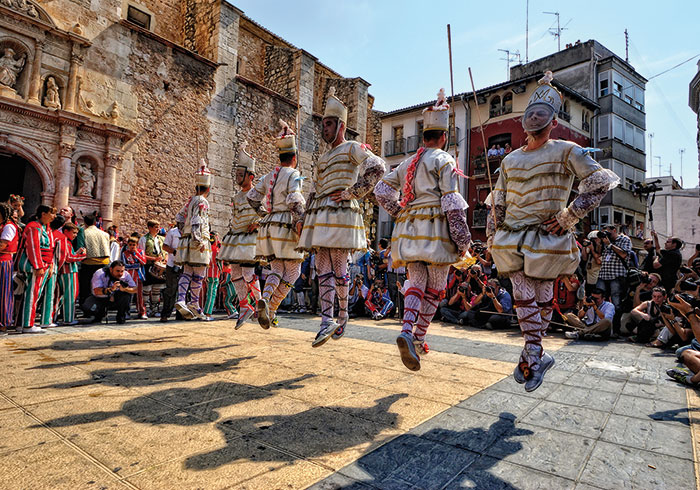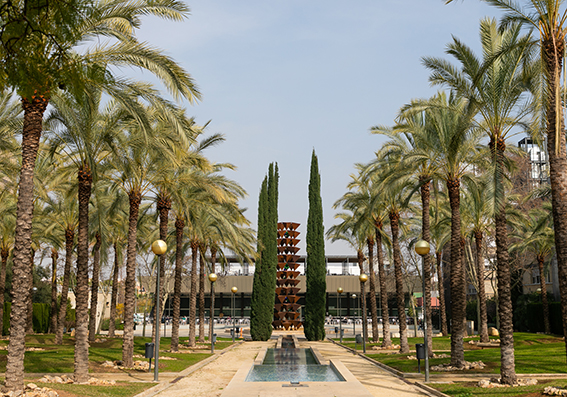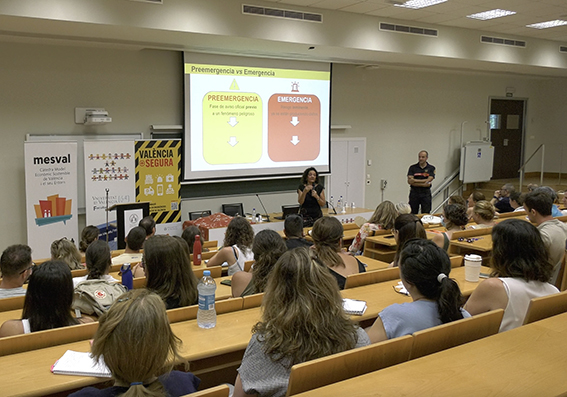The Universitat de València and the Institutes of Regional Studies analyse the intangible heritage of the Valencian territory.

This afternoon, the Faculty of Geography and History welcomes the inauguration of the 7th annual meeting between the Universitat de València and the Federation of Institutes of Regional Studies of Valencia (FIECOV), which will end tomorrow at midday. The congress tries to go more deeply in the rich and varied intangible cultural heritage and its experiences in the Valencian territory.
After confirming the Fallas of Valencia as Intangible Heritage of Humanity, the Region of Valencia already has seven artistic, cultural and traditional representations in the prestigious UNESCO list. The festivities in honour of the Virgin Mary of Health of Algemesí, the Tribunal de las Aguas and the Lonja de Valencia, the cave paintings of the Mediterranean arch and the Palmeral and the Mystery of Elche complete the list.
But in addition to cultural manifestations recognised as Humanity Heritage, towns and regions of the Region of Valencia have valuable samples of heritage that define its identity. This heritage is not limited to monuments but also includes traditions, music, parties, knowledge and gastronomy which have been inherited from the past and is part of our historical identity as Valencians.
In this way, the third UV-FIECOV conference, organizated by the Office of the Vice-Principal for Territorial Projection and Participation and the Federation of Institutes of Regional Studies, in cooperation with Alfons el Magnànim Institution (Council of Valencia), was created with the intention of exchanging experiences and reflecting on the intangible heritage in terms of studies, and value enhancement research and works carried out in the Valencian towns and regions.
Talks y Communications about the Valencian Intangible Heritage
The Conferece will be opened this afternoon at 3.30 p.m, by the vice-principal for Territorial Projection and Participation of the Universitat de València, Jorge Hermosilla; the dean of the Faculty of Geography and History, Ester Alba; the president of FIECOV, Josep Vicent Frechina; and a representant of the Provincial Council of Valencia.
The congress will have a total of 22 communications offered by local researchers and specialists, members of the Institutes of Regional Studies, professors of the Universitat de València, master's and doctoral students, etc.The interventions, which may be presented through reading or representateds by performance, will be divided into 3 blocks, the first one on music and sound; the second one, about experiences and territory; and the third one, about party, gastronomy and landscape. The 22 communications gather proposals and investigations from multiple corners of the Valencian territory, from the music bands of Llíria or the bells ringing of Albaida, to the Trade Fair of Benassal, the elaboration of the pansa in the Region of the Marina of Alicante, the alfàbegues of Bétera, the festivity of les calderes of Sant Pere del Puig or the Blessed Bread of Requena, among many others.
The programme will be completed with 2 talks. The first one, which will be celebrated this afternoon at 4.30 p.m., will be given by Luis Pablo Martínez, movable heritage inspector of Directorate-General for Culture and Heritage, who will offer a conference entitled “Valencian people, pioneers in safeguarding the intangible cultural heritage. Assesment and prospectives". Tomorrow Saturday, at 10:45 a.m., Professor Gil Manuel Hernández (Sociology and Anthropology Department, UV) will give the talk "Global Fires: Fallas as Intangible Cultural Heritage of Humanity".
This meeting is the seventh held between the University and the Institutes of Regional Studies (IDECOS), the third in the format of Conference. Since the first contact in the fall of 2010, the University and the IDECOS have organized conferences and meetings on environment, education, economy, tourism, territorial development, sustainability, participation, electoral analysis, democratic memory, and now, intangible heritage.This new initiative strengthens, therefore, the common project of work that was drawn up between both parts in 2010, and promotes the joint commitment to encourage coexistence, the exchange of experiences and the development of future actions among the university community (teachers, researchers, students) and these territorial groups that collect different sensibilities existing in the Valencian territory.
More information:
















